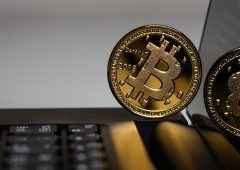South Korea Targets Unregistered Crypto Exchanges, Including KuCoin and BitMEX
21.03.2025 17:00 1 min. read Alexander Stefanov
South Korea is intensifying its crackdown on overseas crypto exchanges operating without proper registration, targeting platforms like KuCoin, BitMEX, CoinW, Bitunix, and KCEX.
These exchanges have been flagged for failing to register as virtual asset service providers (VASPs) under local laws.
The Financial Intelligence Unit (FIU) is considering measures to block access to these unlicensed platforms, working with the Korea Communications Standards Commission to explore technical solutions. Officials are also compiling data on user losses to strengthen enforcement.
KuCoin and other platforms face potential sanctions for non-compliance, with regulatory action expected soon. This move comes as South Korea rejects the idea of holding Bitcoin as a reserve asset, citing volatility concerns, while progressing with a central bank digital currency (CBDC) pilot set to start in April.
In addition to cracking down on unregistered exchanges, the government’s efforts highlight its increasing focus on protecting local investors. With a growing number of South Koreans investing in digital assets, regulators are ramping up measures to ensure compliance and safeguard the market from potential risks posed by unregulated platforms.
-
1
Thailand Launches National Crypto Sandbox
17.07.2025 9:03 2 min. read -
2
Key Crypto Events to Watch in the Next Months
20.07.2025 22:00 2 min. read -
3
House Clears Path for Landmark Crypto Bills: Vote Set for Thursday
17.07.2025 9:15 2 min. read -
4
Australia Tests CBDCs in 24 Separate Real-World Finance Use Cases
10.07.2025 19:00 2 min. read -
5
U.S. House Passes Sweeping Clarity and GENIUS Acts
17.07.2025 23:29 1 min. read
Nigeria Signals Greenlight for Stablecoin Innovation Under New Regulatory Vision
Nigeria is taking a decisive step toward embracing stablecoin adoption, as the country’s Securities and Exchange Commission (SEC) outlined its readiness to support digital currency innovation—under clear regulatory conditions.
South Korea Urges Asset Managers to Limit Exposure to Crypto Stock Like Coinbase,MicroStrategy
South Korea’s top financial watchdog has issued informal guidance urging local asset managers to scale back their investments in crypto-related stocks, according to a Korean Herald report.
SEC Reverses Bitwise ETF Approval Just Hours After Greenlight
In a surprising move on Tuesday, the U.S. Securities and Exchange Commission (SEC) initially approved Bitwise’s proposal to convert its cryptocurrency index fund into a full-fledged exchange-traded fund (ETF)—only to halt the decision just hours later.
Senate Republicans Unveil Crypto Market Bill to Expand CLARITY Act
Senators Tim Scott, Cynthia Lummis, Bill Hagerty, and Bernie Moreno (R-OH) have released a discussion draft of a new digital asset market structure bill—framed as the Senate counterpart to the CLARITY Act.
-
1
Thailand Launches National Crypto Sandbox
17.07.2025 9:03 2 min. read -
2
Key Crypto Events to Watch in the Next Months
20.07.2025 22:00 2 min. read -
3
House Clears Path for Landmark Crypto Bills: Vote Set for Thursday
17.07.2025 9:15 2 min. read -
4
Australia Tests CBDCs in 24 Separate Real-World Finance Use Cases
10.07.2025 19:00 2 min. read -
5
U.S. House Passes Sweeping Clarity and GENIUS Acts
17.07.2025 23:29 1 min. read


